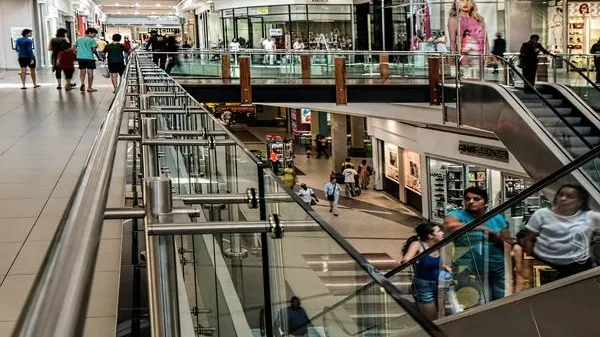
Why 4 in 10 retailers press on with real estate expansion plans in Singapore
Retailers want to capture customers in large residential catchments.
Despite a prolonged journey to recovery and rounds of tightened safe management measures, some retailers intend to proceed with plans to expand their real estate footprint.
In the second installation of the Retailers’ Sentiment Survey by Knight Frank Singapore, 43.3 per cent of respondents indicated that Singapore’s return to stringent control measures under “Heightened Alert” from May onwards have not derailed their plans to seek new physical retail space in Singapore in 2021. The other 46.7 per cent of respondents, however, are either reviewing, postponing or dropping such plans altogether for this year, while the remaining 10 per cent of respondents did not have such expansion plans to begin with.
Here’s more from Knight Frank:
The top reasons for expansion or relocation of physical stores were the broadening of customer bases, being located in areas enjoying larger residential catchment and higher footfall or being in an established mall with more proactive initiatives to draw footfall. Cost considerations also weighed on the decision, as a significant proportion of respondents also cited lower rents or incentives from landlords as the top selection criteria for their next retail outlet.
For homegrown brand Ya Kun International, Rachel Tay, Business Development and Franchise Support Assistant General Manager, shares that they are still on continued expansion for their corporate-run and franchisee stores, with a focus on franchise store growth. Says Ms Tay, “So far, we have taken on a careful approach to taking up new stores. Besides the importance of brand presence, the P&L has to make sense. This is how we build trust with our franchisees. The heartland will be our preferred choice, as this is more appropriate for today’s business climate.”
The preference for physical stores has been reiterated by modern menswear brand Benjamin Barker, which noticed that online sales only made up “a single-digit percentage share” of its revenue. Having opened a new store in Ngee Ann City this month, Benjamin Barker is setting its sights on new overseas markets through its franchisees. Damien Tan, Chief Operating Officer at Benjamin Barker, says, “While many of our customers moved online to buy products during the Circuit Breaker (in Singapore), many flocked back to the stores after the lockdown. Due to the nature of our products and price point, our customers prefer to shop in-store rather than online.
“At the end of the day, male shoppers still prefer to buy in-store because they can try on the clothes and avoid the hassle of returning clothes that they buy online. The psyche of male shoppers is different from female shoppers. They tend to buy in bulk for six months to one year rather than piecemeal. We want things to be easy and convenient for male shoppers.”
Alice Tan, Head of Consultancy at Knight Frank Singapore, notes that there have been more enquiries among clients on how demand for retail space could shift in the post-Covid world. Ms Tan says, “In the face of the pandemic, many retailers have pivoted their offerings and adjusted operations to keep businesses running. Ensuring safe distancing practices in the outlets, providing online channels, delivery service and appointment-only shopping, revamping product and service offerings are some of the adjustments that retailers have made to retain and grow their customer base.
“As pandemic controls in Singapore remain highly fluid, business sustenance and cost management are critical issues that retailers are grappling with. In addition to enhancing online channel strategies, retailers will be looking out for physical retail spaces that are cost and space efficient within proximity to captive catchment of customers.”
Integrating digital with traditional
However, retailers are cognisant that they can no longer keep their customer strategies anchored only in brick-and-mortar stores, with online shopping habits growing and likely to stick in the post-Covid world. The natural response has been an increased use of digital tools, as retailers pivoted to online sales during periods of tightened restrictions. One in every five
respondents in the June-July survey had 100 per cent of their sales derived from online platforms during the one-month period of Phase 2 (Heightened Alert), and on average, online sales made up 34.5 per cent of total sales for respondents during that month, up from 11.6 per cent pre-Covid. They are expecting that online sales will settle at a new equilibrium level of 20 per cent on average when all safe management measures are lifted in the “new normal”.
A majority of retailers have integrated their online and offline purchase platforms, with 60.8 per cent of respondents saying that they are able to make use of data analytics from their online and offline channels to improve sales – based on an earlier February-March survey by Knight Frank Singapore. About 45.8 per cent of the respondents also shared that they are able to provide customers with an integrated experience across in-store and online channels.
To ride the economic recovery that is on the horizon, Leonard Tay, Head of Research at Knight Frank Singapore, stresses that the retail sector must therefore move forward and evolve to adapt to the changing dynamics in consumer lifestyles and behaviours. Says Mr Tay, “The pandemic showed that e-commerce and traditional brick-and-mortar stores need not be opposing or competing forces but could instead complement each another in a symbiotic fashion.
“Malls should not only focus on providing a multi-dimensional immersive experience for consumers through technology, but also consider placemaking strategies to pull shoppers into the malls by providing them with what they cannot access online. Such efforts must focus on bringing people together, allowing them to create memorable moments in malls.”
Balancing landlord and tenant relationships
Moving forward, Ethan Hsu, Head of Retail at Knight Frank, believes that communication between landlords and tenants is key in ensuring long-term success in the physical retail landscape. Mr Hsu says, “Landlords should engage with tenants to work out lease terms that are aligned with common goals and objectives. Landlords should also incentivise tenants with
exciting and unique concepts that can bring in new ideas, elements and footfall to the malls. With the new fair tenancy framework, tenants can look forward to more transparent discussions with landlords to craft out mutually-agreed commercial terms.”
This is a sentiment echoed by Paradise Group’s Chief Executive Officer, Eldwin Chua: “For chain operators like us, we are always eyeing good locations. For popular locations that are highly sought-after, the landlord makes the call. The Fair Tenancy Framework still allows a clause for the landlord and tenant to jointly declare an alternative rental structure with either a fixed rent or a percentage of gross turnover, whichever is higher. But what is fair this time under the new framework is the inclusion of mutual or unilateral pre-termination rights in the lease agreement. Still, landlords have a part to play in supporting the tenants through this crisis.”



















 Advertise
Advertise





